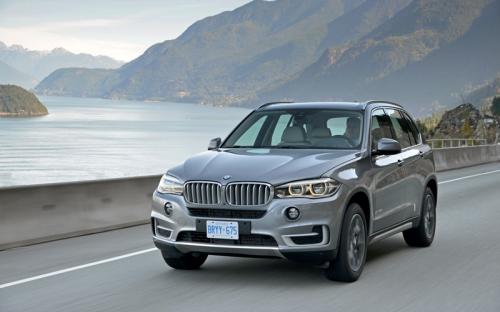If you thought diesel engines were noisy, smelly, and dirty, that's nothing compared to Volkswagen's diesel-emissions scandal. Volkswagen has created one heck of a mess for itself, and the fallout is contaminating the rest of the car industry, regardless of whether other carmakers are in compliance with the regulations.
At the core of the misdeeds are diesel-powered vehicles built by Volkswagen, to include some of those made by companies owned by Volkswagen, such as Audi. The company has admitted fitting diesels with software that can sense when the vehicle is being tested on a dynamometer for emissions, in which case the software switches on the engine’s full emission control system. If, however, the software senses that the vehicle is rolling on the highway, it turns off the emission control system. In doing so, Volkswagen appeared to meet the emissions standards without having to install an expensive exhaust emission mitigation system using urea, which could have added about $330 to the cost of each vehicle.
As owners of BMW diesel-powered vehicles know, BMW built its vehicles with the diesel exhaust fluid—as the urea is commonly called—system.
As far back as 2007, the Robert Bosch Company warned Volkswagen that using Bosch diesel test software on road-going vehicles was illegal. Volkswagen apparently disregarded that warning.
Following a series of exchanges and tests involving the International Council on Clean Transportation (ICCT), West Virginia University, the California Air Resources Board (CARB), and the U.S. Environmental Protection Agency (EPA), Volkswagen’s shenanigans were uncovered. On September 18, 2015, the EPA released a statement that certain Volkswagen diesel-powered vehicles were able to detect when the vehicle was undergoing an EPA emissions test and turn on the vehicle’s full emission controls. During real-world driving, the full emission controls were switched off, resulting in unacceptable levels of emissions.
Well, the nitrous oxide really hit the fan.
Volkswagen admitted that as many as 11,000,000 diesels were affected. Audi said up to 2,100,000 A4 Sedans and Q5 SUVs had the illegal software. European regulators swung into action. The Germans have required a plan from Volkswagen by October 7 on how it proposes to fix the emissions of illegal vehicles. Switzerland has banned the sale of the miscreant diesels. France and Italy are rushing to road test diesels for emissions.
Volkswagen CEO Martin Winterkorn resigned on September 24, 2015. Prior to being named the head of the Volkswagen group, he had presided over the Volkswagen brand, so his fingerprints were all over the malfeasance. On September 28, 2015, prosecutors in Germany began criminal investigation of Winterkorn. Interestingly, Volkswagen also filed a criminal complaint with the same authorities to “help with Volkswagen’s internal investigation."
Matthias Mueller, previously head of Porsche, was named Volkswagen CEO on September 25, 2015. With Volkswagen shares down 39 percent by September 28, and looking at Volkswagen’s market value down by $25,000,000,000 (yes, that’s billions), to say that Mueller has his work cut out for him is a massive understatement.
The forgotten millions who are holding the bag right now are the diesel vehicle owners as well as the Volkswagen and Audi dealers around the world who are sitting on diesel inventory they can’t move. Does Volkswagen even have the money to pay the expected fines in various countries, settle the inevitable lawsuits, and make things right with the diesel vehicle owners and dealers?
What does all this have to do with BMW?
On September 24, 2015, Auto Bild, a German automotive web site, reported that the ICCT had tested the BMW X3 and found it emitted eleven times the allowed level of nitrous oxides. The report implied there were irregularities in the testing of the BMW X3.
Auto Bild later “clarified” its original story, stating, “There is no evidence of emission manipulation by BMW. The values mentioned in the document were only generated in a single, one hour-long road test. Auto Bild has no access to the details of this test trail, which might explain the discrepancies to the test cycle New European Driving Cycle (NEDC).”
BMW responded the next day to the Auto Bild report. In a nutshell, BMW denied any wrongdoing, and reiterated that its vehicles, in both testing and the real world, complied with the regulatory requirements of the countries in which its vehicles were sold.
Here is the full text of the BMW statement:
BMW Group statement concerning the current discussion of diesel engines
“The BMW Group does not manipulate or rig any emissions tests. We observe the legal requirements in each country and fulfill all local testing requirements.
“In other words, our exhaust treatment systems are active whether rolling on the test bench or driving on the road.
“Clear, binding specifications and processes are in place through all phases of development at the BMW Group in order to avoid wrongdoing.
“Two studies carried out by the ICCT have confirmed that the BMW X5 and 13 other BMW vehicles tested comply with the legal requirements concerning NOx emissions. No discrepancies were found in the X5 between laboratory-test and field-test NOx emissions.
“Auto Bild has published a clarification of their article released on 24 September concerning the emissions of a BMW X3: “No evidence of emission manipulation by BMW (…) The values mentioned in the document were only generated in a single, one hour-long road test. Auto BILD has no access to the details of this test trail, which might explain the discrepancies to the test cycle NEDC.”
“We are willing to discuss our testing procedures with the relevant authorities and to make our vehicles available for testing at any time.”
The importance of diesel engines in achieving CO2 targets
“Policymakers worldwide, and in particular in the European Union, are setting tough standards for CO2 and other emissions. The 2020 targets in Europe can only be fulfilled through extensive use of modern diesel engines and further electrification.
“The progress achieved so far in CO2 reduction in Europe is largely due to the use of diesel technology. Meeting future requirements will not be feasible without diesel drive trains, since a diesel engine emits roughly 15 to 20 per cent less CO2 on average than a comparable petrol engine.
“At the BMW Group, we have invested a great deal in recent years in refining and optimizing diesel technology as part of our EfficientDynamics program.
“At BMW, diesel vehicles accounted for 38% of vehicles sold worldwide last year: Europe 80%; Germany 73%; US 6%. This represents approximately 20,000 vehicles in the US in 2014.
“The Euro 6 emissions standard, which took effect on 1 September 2015 and is binding for all new vehicle registrations, improves both environmental and consumer protection.
“To bridge the gap between test results and real-life fuel consumption and emissions, the European Union is working on a new test cycle (WLTP) and an emissions test for real driving situations, known as “real driving emissions” or RDE. We support the swift introduction of the new regulations to create clarity for consumers and the industry as quickly as possible.”
It is now open season on every aspect of every vehicle made by BMW and any other car company—but especially the German ones. BMW’s rebuttal to the now watered-down Auto Bild report places the ball squarely in the court of whoever wants to try to be the one to take down BMW. Or Mercedes-Benz. Or any other automaker they can find to prove that “big auto” values profit over the environment.
If journalists can legitimately investigate and prove that other carmakers illegally rigged emissions tests like Volkswagen did, then they should report it and they would have done us all a great service. But, if they investigate carmakers and cannot find evidence of wrongdoing, then they should do the right thing and report that as well.—Scott Blazey
[Photos courtesy of BMW AG.]












